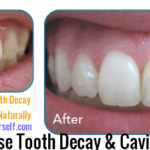Valerian – Natural Tranquilizer, Anti-Seizure, and Sleep Aid
Valerian relaxes the central nervous system and the smooth muscle groups. It has been used as a sedative, sleeping aid, and anti-seizure treatment for hundreds. Its especially helpful when there is difficulty in falling to sleep due to nervousness. It has not been found to have any negative side effects with moderate use.
It is calming without too much of a sedative effect and is essentially non-addictive. It has been shown in studies to reduce: the time it takes to fall asleep, wake-time after sleep, frequency of waking, nocturnal motor activity, inner restlessness and tension. It tends not to leave one feeling groggy after waking. The valepotriates have a regulatory effect on the autonomic nervous system; research suggests that they have a calming effect on agitated people but are also a stimulant in cases of fatigue.
Valerian is used in Europe as an antispasmodic, particularly for abdominal cramps due to nervousness and for uterine cramps and menstrual agitation. It helps relieve dysmenorrhoea and it can be of benefit in migraine and rheumatic pain. It may also be applied locally as a treatment for cramps and other muscle tensions. In the gastrointestinal tract, it is a great intestinal relaxant and carminative, and has been used as a treatment for IBS.
Valerian is also used as a mild tranquilizer for people experiencing emotional stress, much as anti-anxiety drugs are prescribed and has been prescribed for exhaustion. Valerian has occasionally been tried as part of a program to take a patient off antidepressants or benzodiazepines, and is sometimes used as a muscle relaxant to treat pain.
It has been suggested that valerian is as effective as valium, with out the additictiveness, or the negative side effects. Source: Herb wisdom
Valerian root also contains essential vitamins and minerals such as calcium, magnesium, EFA’s, beta-carotene and B vitamins. Because it’s an herb, valerian also contains Quercetin; a bioflavonoid high in antioxidants associated with cardiovascular health and known for its beneficial effects against hypertension, atherosclerosis, osteoporosis and diabetes. It is said to improve circulation.Source.
Valerian has also been the subject of a number of high quality clinical studies. Some highlights of these are summarised below:
~ A randomized double-blind clinical trial showed the Valerian tablets (equivalent to 3gms dried herb) was as effective at treating insomnia as the powerful Valium type sedative Oxazepam (10mgs) but there were no morning after adverse effects with the Valerian as opposed to the Oxazepam (Dorn M: Forsch Komplementarmed Klass Naturheilkd 7(2):79-84,2000)
~ A single strong dose of Valerian was given to 20 test subjects with insomnia who were wired up to equipment to measure their brain-waves etc. (this test was also conducted in the randomized, double-blind and placebo-controlled method to get the cleanest results). It was shown that the Valerian decreased waking episodes, increased REM sleep, decreased the time it took to get to sleep, and decreased morning after sleepiness (Gerhard U, Linnenbrink N, Georghiadou C et al.Schweiz Rundsch Med Prax 1996;85(15):473-481)
~ A double-blind study showed that 2 weeks of treatment with Valerian and St Johns wort was more effective than 2 mgs Diazepam in patients with moderate anxiety and had much fewer side effects (Panijel M. Therapiewoche 1985;35(41):4659-4668)
~ A similar study, also randomized, controlled and double-blinded compared Valerian and St Johns wort against the antidepressant drug amityptyline and showed an 82% improvement rate in the herbal group after 6 weeks compared to 77% in the amityptyline group but without any of the side effects of dry mouth, drowsiness etc. from taking the drugs (Hiller KO, Rahlfs V. Forschende Komplementarmedizin 1995;2:123-132)
~ a combination of Valerian and Hops reduced noise-induced sleep disturbance in a randomized, double-blind study which showed the herbs were as effective as a benzodiazepine drug in patients with temporary sleep-onset and sleep interruption disorders (Schmitz M, Jackel M: Wien Med Wochenschr 148(13):291-298,1998)
~ The relaxing effects of Valerian were confirmed in a number of uncontrolled studies in Germany in the late 1960s and it was later shown in a randomized, placebo-controlled, double blind study that repeated doses of Valerian root did not have a negative effect on reaction time, alertness or concentration the morning after intake; measured at 3 grams each night for 2 weeks (Kuhlmann J et al: Pharmacopsychiatry 33(2):47-53,2000)
![]() Safety of Valerian
Safety of Valerian
Valerian is an extremely safe herb for people of all ages and is able to be taken during pregnancy or whilst breast-feeding with confidence. No ‘morning-after’ side-effects are expected though it must be noted that when people initially start paying back their ‘sleep-debt’ they almost always feel more tired overall as their bodies move from their previous edgy ‘up’ adrenalised state into one that is more relaxed and able to sustain a longer and happier life!
No herb suits everyone and for a small percentage of people Valerian will be felt to be stimulating rather than relaxing or it may cause a particular type of frontal headache. When this does happen it is almost invariably because the constitution is already too hot and the pronounced warming qualities of Valerian tip things over the edge. The traditional addition of Hops to Valerian at the same time largely counterbalances this potentiality but some individuals will show a strong sensitivity to Valerian regardless and for them the use of herbs such as Skullcap or Kava will be much more agreeable and effective.
Valerian also has some mild cleansing properties and people often notice they urinate more than usual or have a period of coughing up some old stuff in their lungs.
The right therapeutic dose of Valerian is the one that palpably works. I mostly use teas and tinctures in my work but in this case I am fond of using a concentrated extract of Valerian in capsule form that allows me to give some very strong doses indeed, especially helpful for some of my more dedicated insomniacs!
In some cases just two tablets are ample to take before retiring but if I want to make doubly sure I will get the patient to take 2 tablets about an hour before they go to bed and then another two just before they turn in.
This ‘pulse-dosing’ method causes a very high level of the valepotriates etc. to be in circulation through the blood stream throughout the night and it particularly effective at helping people who have a long habit of frequent waking and restless sleep. It often starts working from the first night though, as is always the case with herbs, the longer you take them the better they work. Source.
Additional Health-Boosting Effects
In addition to the active phytochemicals found within this plant, there is a high
nutrient content in the roots as well as the stems and leaves of Valerian. The following is a short list of some of the nutrients found in Valerian root:
- Calcium
- Choline
- Essential fatty acids
- Iron
- Magnesium
- Manganese
- Phosphorus
- Potassium
- Selenium
- Zinc
- Vitamins B1, B2, B3, and C
These nutrients can contribute to improved health across a wide spectrum of measures. As a source of vitamin C, Valerian may be able to improve collagen synthesis of collagen, which not only keeps our bones strong, but helps to heal wounds and maintain the strength of blood vessel walls.
Vitamin C also strengthens the immune system, providing antioxidants that destroy free radicals (free radicals cause cellular damage), and helps the body absorb iron.
Vitamin B1 (thiamine) enhances circulation, metabolism of carbohydrates, and aids in digestion and blood cell formation. The vitamin is also known to enhance brain function and cognitive abilities, further supporting other benefits of Valerian root.
Vitamin B2 (riboflavin) is vital for the formation of red blood cells as well as production of antibodies in the blood. It is important in cellular growth and respiration functions. Vitamin B2 is beneficial for eye health, reduces eye fatigue, and can help reduce the risk of cataracts.
Vitamin B3 (niacin, niacinamide, or nicotinic acid) is also needed for optimal circulation. It’s good for your skin too. Vitamin B3 aids nervous system functions and the metabolism of fats, proteins, and carbohydrates.
Valerian root is believed beneficial in lowering high blood pressure, improving circulation.
When taken as directed and when used short-term,Valerian root side effects are rare. Long-term use of valerian root may cause headaches and a sense of restlessness or sleeplessness, the opposite effect of what most people take for the supplement for. Overdose is not considered a serious risk, but high dosages may increase the likeliness of adverse effects.
Talk to your doctor if you are taking prescription medications for any medical condition, as Valerian may initiate lack of efficacy or even negative interactions with prescription or other over-the-counter medicines.







Leave a Reply